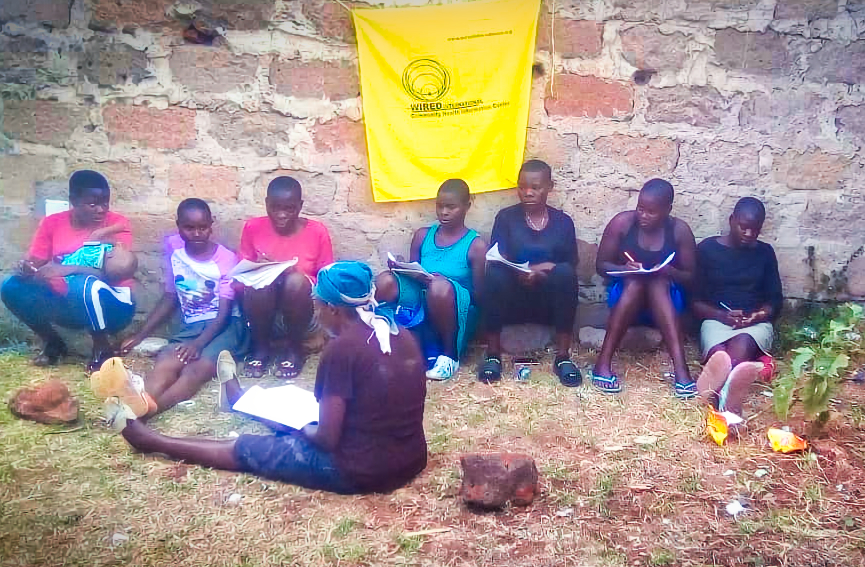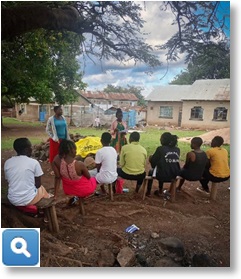Monthly Update from WiRED International’s Community Health Workers in Kenya
Floods Bring Hardship and Health Challenges to the Kisumu Region
By Allison Kozicharow; Edited by Staff
April in Kisumu, Kenya has indeed been “the cruelest month.” WiRED community health workers (CHWs) are grappling with floods following a long drought. The weather continues to cause a myriad of woes in the community from displacement to severe food and safe water shortages to cholera and malaria outbreaks.
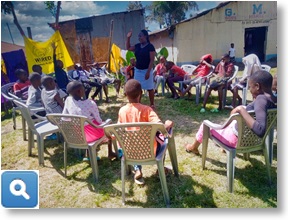 Nevertheless, during the month of April 2023, 22 CHWs in Kisumu, Kenya, reached a total of 10,876 people with health services. Working 24 hours per week, each of the CHWs met with at least 64 patients a week, and the largest number seen in a week by a single CHW was 423, most of them in health training classes.
Nevertheless, during the month of April 2023, 22 CHWs in Kisumu, Kenya, reached a total of 10,876 people with health services. Working 24 hours per week, each of the CHWs met with at least 64 patients a week, and the largest number seen in a week by a single CHW was 423, most of them in health training classes.
Overall, the top health issues for the month of February were as follows, in order of prevalence:
Despite the current crisis, WiRED CHWs are making a difference — demonstrated clearly by stories from the field. Without CHWs the Kisumu community, like others in low-resource areas worldwide, would face health hardships alone.
In March, the CHWs launched a Health Screening Clinic Program, a valuable community health innovation that significantly advances the team’s contributions to improving the health of the neediest people in the slums of Kisumu. Stay tuned for further coverage of the program’s progress.
A Few Words to Introduce WiRED’s Stories from the Field
The World Health Organization (WHO) reports that, even under normal conditions, health workers in low-resource regions are in desperately short supply. Last month, WHO published an article urging decision makers to adopt programs that train and support health personnel. It’s a time-worn appeal.
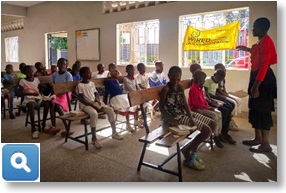 Officials have known about the health worker shortage for decades, and yet the situation has deteriorated year-by-year. The lack of health workers has become a life-or-death matter in many regions.
Officials have known about the health worker shortage for decades, and yet the situation has deteriorated year-by-year. The lack of health workers has become a life-or-death matter in many regions.
WiRED has tracked these setbacks, and several years ago developed a rigorous, research-based curriculum to train ordinary people how to serve as community health workers (CHWs); these CHWs would act as an auxiliary health force. The 150-hour classroom course (soon to be 200 hours) provides rigorous training in a broad spectrum of health and medicine topics, preparing CHWs to address the health needs of people in their communities.
I noted that under normal conditions, there is a health worker shortage. But, these are not normal times, they are much worse. People in Kisumu, Kenya now face the growing devastation of climate change and the plagues it brings about. As I write this, I read in the local papers and hear from our CHWs in Kisumu that relentless flooding has washed away homes, swamped water supplies and spread sewage everywhere. With flooding comes the rise of diseases, such as malaria and cholera. The floods have washed away crops and killed livestock, causing starvation, further adding to the misery.
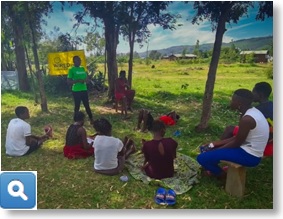 The stories below are from CHWs, who provide critical health services to the people who live in the slum settlements in and around Kisumu. Their work is always a lifeline to people in this region, and now, with the extraordinary stresses of flooding, hunger and disease, their work is even more important to the health and well-being of the people they serve.
The stories below are from CHWs, who provide critical health services to the people who live in the slum settlements in and around Kisumu. Their work is always a lifeline to people in this region, and now, with the extraordinary stresses of flooding, hunger and disease, their work is even more important to the health and well-being of the people they serve.
I ask the readers of this article to think about those conditions and about how these CHWs are able to provide training and whatever relief they can to the families facing dire conditions in Kisumu. I am proud of these heroic CHWs and thank them for their remarkable work.
— Gary Selnow, Ph.D., WiRED Executive Director
Stories from the Field
Cholera Outbreak in Kisumu
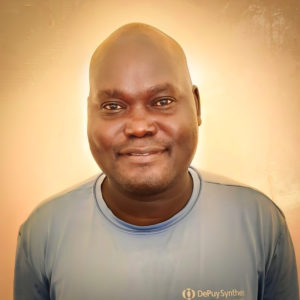
After a long drought we now have floods in my country, which has brought many challenges: a higher cost of living and not enough food or safe drinking water. Many families have resorted to using drain water for domestic use, which if not treated is contaminated from the rusted rain roofs. Cholera has broken out especially in Kisumu. As a trained CHW it is a very critical time for me to conduct many sessions to teach the community to take precautions to protect themselves against cholera. I showed the WiRED cholera module, and the participants were very grateful and happy to learn about the disease. I want to confirm that our CHW work has contributed a lot to the prevention of cholera because no death from this killer disease has been reported.
— Daniel Ayieko

This April I visited with a group of young girls ages 9-24 year. I led a discussion about cholera, which is the major outbreak now in Kisumu. We talked about the ways the disease spreads through untreated and unsafe drinking water and defecating near water. The girls got interested in proper handwashing procedure, and we went through the steps. I also taught them the signs and symptoms of cholera and that it is vital to seek medical help immediately because cholera can kill within 24 hours. The outreach was a success.
— Linet Awuor, CHW

Right now our community is experiencing severe flooding, which has led to an outbreak of cholera. To prevent cholera we CHWs are raising awareness about the importance of handwashing and hygiene. We are also advising people not to walk barefooted during the rain because they could easily come into contact with snails and contract cholera, typhoid or bilharzia.
— Tracy Agatha, CHW
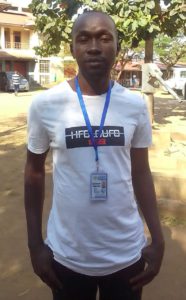
Cholera is now reported in Kisumu due to the constant downpours. My task is to sensitize the community on how to prevent cholera, mainly through proper handwashing and thoroughly cooking food.
— Zachary Omondi, CHW
An Appeal
CHWs face many challenges. They work in remote and underserved communities, and they don’t always have access to the resources they need to do their jobs effectively, especially now that conditions impose greater demand on them. WiRED provides as much support as we can, and we welcome others to join us. How? By:
- Funding CHW training programs
- Providing CHWs with access to resources such as medicine and equipment
- Advocating for CHWs and their work
By supporting CHWs, we can help improve the health and well-being of communities in low-resource regions, especially now that it appears climate change is taking its toll on the most vulnerable people. To donate, please click here.

